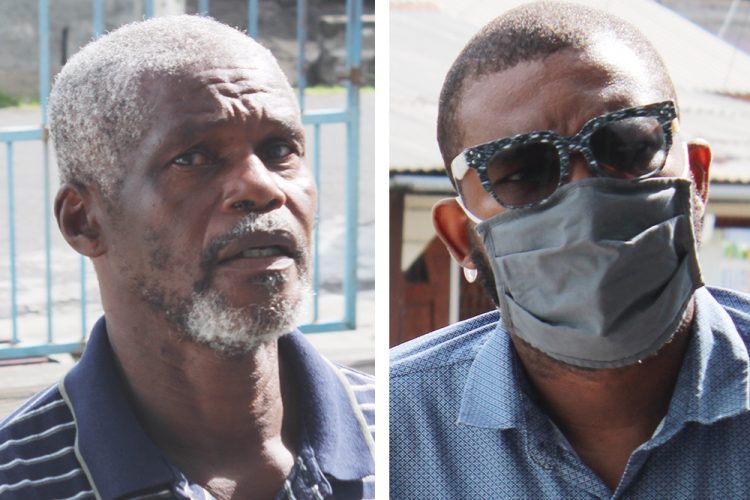No evidence Assistant DPP was on scene of shooting

There was no evidence presented during trial that places Assistant Director of Public Prosecutions(DPP) Karim Nelson on the scene of the shooting of Diamond resident Cornelius John.
His lawyer Ronald Marks informed the court of this while making a no case submission after the prosecution closed its case on Wednesday, November 17.
Nelson, who was charged with wounding John on April 13 at Diamond, as well as with unlawful discharge of a firearm was being tried alongside Unity Labour Party(ULP) Senator and Deputy speaker of the House of Assembly, Ashelle Morgan who was charged with criminal assault. Both were acquitted yesterday, November 18.
There were three prosecution witnesses who claimed to have been able to assist with how the event of April 13 unfolded.
They are: Rochel Franklyn, a neighbour who spoke about assisting John after the incident; Nicole John who said she was listening from her porch that has a view of her husband’s yard, and Cornelius John, the person who was shot.
“Cornelius John gave three statements, and he gave evidence here in court,” Marks said, while his wife, “made four and then she made a fifth one during the course of these proceedings and she also gave evidence here.”
“Rochel Franklyn gave three statements to the police,” he said.
“These are the only three persons who are able to assist the court in identifying who was this ‘tall man’ in a mask and a hat,” Marks said, describing how the witnesses described the alleged shooter. “No one places Karim Nelson on the scene,” the counsel noted.
“The prosecutor tried with circumstantial evidence but even the police are saying that what they found (on the scene that night) was a 9mm shell and the expert is telling us the weapon Karim Nelson was issued with is a .40, which is a larger caliber weapon than what the police described they found,” he pointed out.
The lawyer said that this is a moot point, because “the identification evidence is totally and completely absent from this case.”
Further, the conditions did not lend itself to observing, with the time being late evening when it was dark, and the volcanic ash was causing obscured visibility.
“So these three persons unable to identify the tall man in the mask and the cap and there’s no other evidence, not a scintilla of evidence that creates a nexus between my client and the charges for which he has been charged. In the circumstances your honour we are saying that the prosecution having closed its case, has failed to put Karim Nelson on the scene and as a consequence he has no case to answer before this honourable court.”
The prosecutor St Lucia’s Deputy Director of Public Prosecutions(DPP), Stephen Brette conceded that there was no direct identification evidence linking Nelson to the scene but only circumstantial evidence.
He said he was constrained to this concession because the court had ruled that it “couldn’t wait” for a witness.
Among the circumstantial evidence is that a Glock .40 and 24 rounds of ammunition were issued to Nelson in January 2020.
“The defendant submitted what turned out to be the same firearm, same serial number given to him by the Commissioner to Officer Hoyte.
That firearm was found to have two magazines and 23 rounds of ammunition. So the court can properly draw an inference that Mr Nelson or somebody using his firearm fired one round of ammunition out of the 24,”Brette argued.
“I was prevented from asking the Commissioner whether the defendant had a license to carry a firearm or he was issued with a firearm,” the prosecutor said, but this was important.
He said it was important because when you are service issued you get your rounds issued to you by the authority and you are to account for it.
Brette also questioned for what reason Nelson would have handed in the firearm to the police.
The prosecution also noted, “You see, the difficulty I have was my examination in chief was always being fettered by my learned friends(defence counsel) with unfair objections.”
One of the defence counsel chimed in “who object more than you?” when Brette said this.
“I’m sorry to say sir (to the magistrate), I’m sorry to say, and I say it with the utmost deference to the court, I’m saying what actually occurred, and most of the time those objections were being upheld…” Brette noted.
However, he said based on the evidence the defendant should have to answer to the case.









